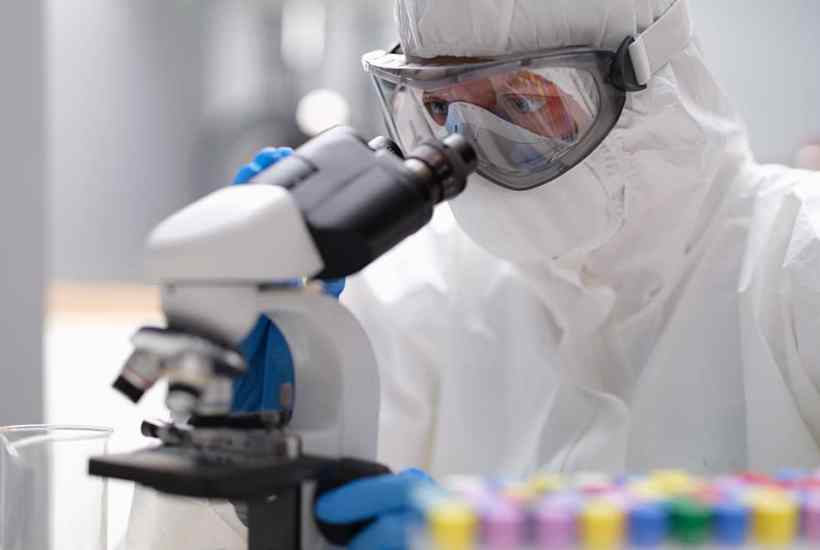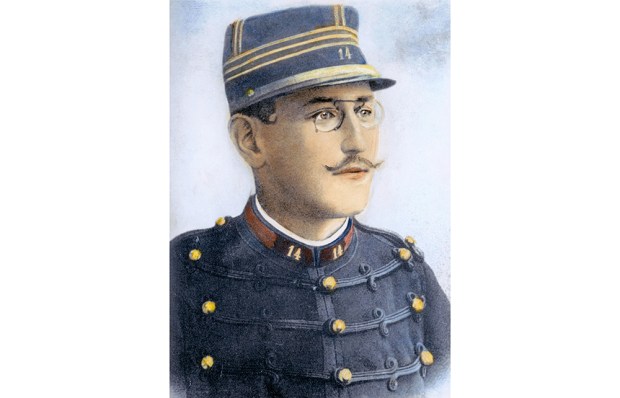When Ray Bradbury was asked if his dystopian vision in Fahrenheit 451 would become a reality, he replied: ‘I don’t try to predict the future. All I want to do is prevent it.’ In the hot embers of the Covid-19 pandemic, it may not be enough to foresee infectious disease threats if we lack the ability to forestall them. After all, predictions were made about 2019. In a Ted talk four years earlier, Bill Gates warned about what he later called ‘Disease X’, a respiratory disease that would cause millions of fatalities. Devi Sridhar, a professor of public health at the University of Edinburgh, addressed the Hay Festival in 2018 with an uncanny description of a zoonotic virus from China that could spread across the globe. Both Sridhar and Gates play down their prescience as the kind of thing anyone who is au fait with epidemiology might have come up with. But these predictions helped make them both authoritative voices in the two years that followed.
Gates brands himself as a fixer: personal computing, climate change, global health. He’s ‘an optimistic person who’s naturally inclined to focus on solutions’, he says. How to Prevent the Next Pandemicargues that Covid-19 was a systems failure. An efficient international network of data-sharing and biomedical collaboration scarcely existed in 2019, and the parts that did exist underperformed. Gates’s remedial plan is both simple and infuriatingly difficult, with suggestions that include: ‘Find new treatments fast’, ‘get better at detecting outbreaks early’, ‘help people protect themselves’ and capture ‘more data, more accurate data’. His final prescription – ‘strengthen health systems’ – encompasses the entire history of medicine. Gates’s central proposal is an ever-ready agency called Germ – the Global Epidemic Response and Mobilisation team – comprising 2,500 permanent multidisciplinary employees who detect, contain, treat and eradicate pathogens of concern. Gates costs it at $1 billion per year.
It’s hard to disagree, especially when the human and financial savings, were another pandemic to arrive, make obvious sense. But this pristine vision is rinsed of sticky politics, messy psychology and dirty vested interests. These inevitably complicate things. Reading How to Prevent the Next Pandemic feels like sitting through a 250-slide presentation delivered on Teams. There are plenty of bullet points. After mentioning the elephant in the room – ‘Bill Gates is an unelected billionaire – who is he to set the agenda on health or anything else?’ – it’s swiftly ushered out, with the excuse that the Gates Foundation is transparent about its priorities and outputs. Gates never misses a chance to plug his philanthropic projects and Microsoft products. Yet it was the Gates index of preparedness that, pre-Covid, predicted that the US and UK were the two leading nations for pandemic readiness and capacity. This was very wrong.
In Preventable, Sridhar, an advisor to Nicola Sturgeon’s government and columnist for the Guardian, also focuses on the UK and US and dissects their mistakes. She agrees with Gates that ‘there was no coordination on a global plan’, but emphasises that this was predominantly a failure of people, not infrastructure. Other nations’ relative successful pandemic responses hinged on ‘less tangible qualities like political will, leadership, trust in government, the capability of senior politicians, and willingness to learn quickly from other countries’. It’s shocking now to remember bizarre scenes like Trump’s chauffeured display outside Walter Reed Hospital while infected with Covid; to return to debates about herd immunity and ‘following the science’; and to consider that terrifying two-week incarceration on the Diamond Princess cruise ship, especially when on 20 February 2020 the largest number of Covid cases outside China was on that ‘floating germ factory’.
Won over by models and flawed behavioural science, the UK’s critical error was not believing Covid was preventable from the outset, nor acting with speed to capitalise on our island status. Instead, infection was seen as an inevitability. The government abandoned elimination in favour of suppression and mitigation. Sridhar’s astute analysis of New Zealand, Australia and Sweden offer histories of how things could have been different at home. Preventableridicules Boris Johnson’s claim that he got ‘the big calls right’. The UK has lost its reputation as an exporting authority of public health excellence, suggests Sridhar. Beaten by the world, we have lessons to learn from the countries that Britain condescended to in the past.
She also risks something of herself by reflecting on the misogynistic abuse she suffered as an impressive young female academic. Comfortable with live-tweeting the pandemic to her thousands of online followers, she wrote Preventable in August 2021, knowing it wouldn’t be read for eight months. Quite rightly, there is hesitancy in her conclusions about what winter would bring. This humility about the future, she insists, is critical to science, though deviating from the strident ‘how to’ genre of her title. Unlike CEOs, politicians and many scientists, historians would also caution that the past cannot provide ready-made lessons for such complex situations.
The most interesting insight Gates and Sridhar share is the risk of learning too much from Covid. If professionals and the public follow the Covid playbook to the letter, the next virus could be disabling if it is more lethal, transmitted through a different route, or targets children before the elderly. While the UK practised for pandemic flu, a disease which healthcare leaders assumed would be too contagious to contain, countries such as New Zealand quickly recognised that Covid was more like Sars and Mers, prompting their agile realignment towards a zero Covid strategy. To over-rehearse can be more dangerous than to improvise. Prediction may not assist with prevention. In fact it might do harm.
Got something to add? Join the discussion and comment below.
Get 10 issues for just $10
Subscribe to The Spectator Australia today for the next 10 magazine issues, plus full online access, for just $10.
You might disagree with half of it, but you’ll enjoy reading all of it. Try your first month for free, then just $2 a week for the remainder of your first year.














Comments
Don't miss out
Join the conversation with other Spectator Australia readers. Subscribe to leave a comment.
SUBSCRIBEAlready a subscriber? Log in